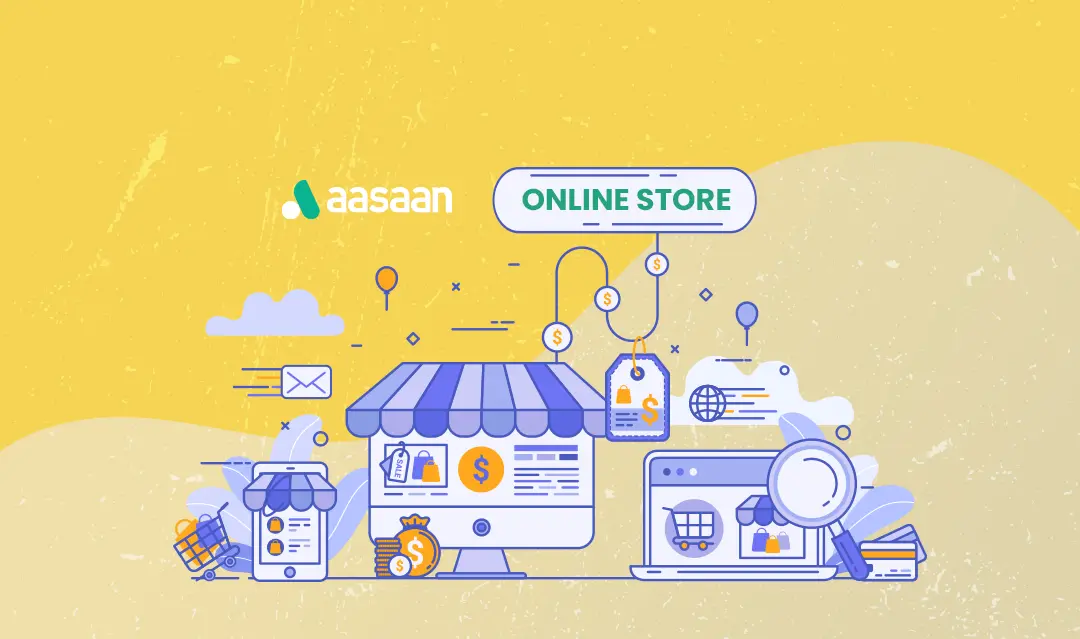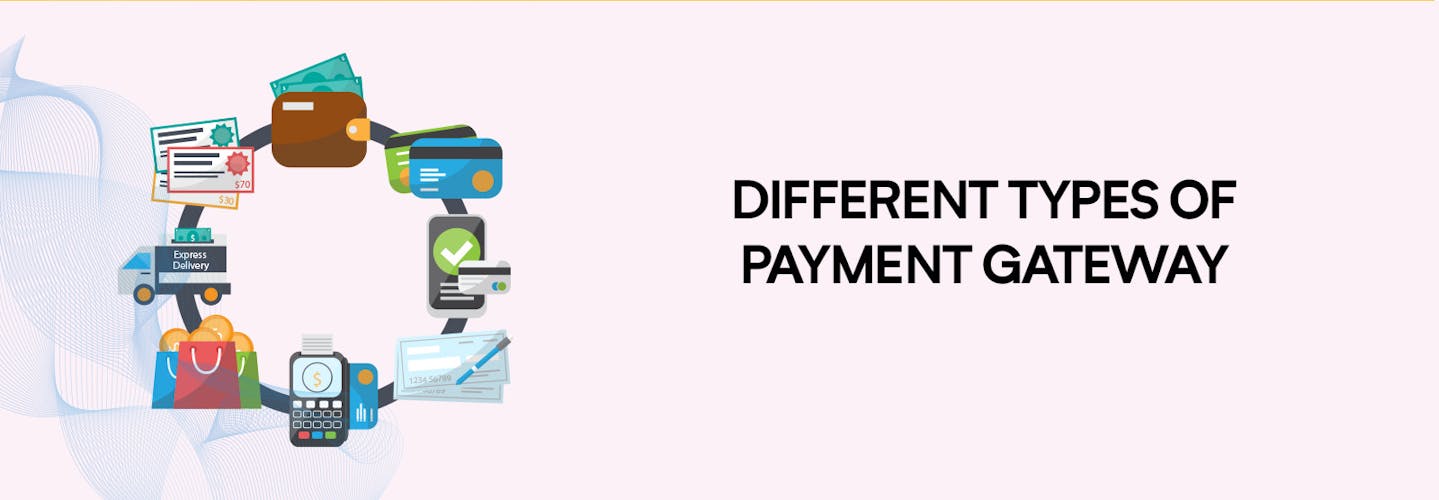
Payment Gateway Types: A Comprehensive Breakdown for E-commerce Businesses
In today’s digital age, more and more businesses are moving online, and with that comes the need to accept payments electronically.
Payment gateways are a crucial part of the ecommerce landscape, allowing businesses to accept online payments securely and efficiently.
In this article, we will provide an overview of the different types of payment gateways available and also we will discuss the factors that businesses should consider when choosing a payment gateway..
We will delve into the world of payment processing options and explore various online payment gateway solutions to help you find the perfect fit for your business.
What is a payment gateway?
A payment gateway is a vital component of the e-commerce ecosystem, allowing businesses to accept and process online transactions securely.
The variety of types of e-commerce payment gateways available today is vast, each designed to cater to specific business needs and preferences.
The most common types of payment gateways include:
- Hosted Payment Gateways
- Self-Hosted Payment Gateways
- API-Hosted Payment Gateways
- Local Bank Integration
- Direct Payment Gateways
1. Hosted Payment Gateways

Hosted payment gateways are external payment processing options that redirect customers to the gateway provider’s platform to complete the transaction.
This approach is popular among small and medium-sized businesses because the payment gateway provider handles the entire payment process, ensuring a secure environment for sensitive data.
How Hosted Payment Gateways Work
When a customer is ready to make a purchase on a business’s website, they are redirected to the payment gateway’s hosted page to complete the payment process.
The hosted page is typically branded with the business’s logo and colors to maintain a consistent brand image.
The customer enters their payment information on the hosted page, and the payment gateway processes the transaction.
Advantages of Hosted Payment Gateways
- Security: Hosted payment gateways provide an added layer of security, as the payment information is entered on a separate, secure page.
- Convenience: Hosted payment gateways are easy to set up and use, requiring minimal technical knowledge.
- Branding: Hosted payment gateways can be branded with the business’s logo and colors to maintain a consistent brand image.
Disadvantages of Hosted Payment Gateways
- Limited customization: Hosted payment gateways may have limited customization options compared to self-hosted payment gateways.
- Less control: Hosted payment gateways are controlled by the payment gateway provider, so businesses have less control over the checkout process.
Examples of Hosted Payment Gateways
Two popular examples of hosted payment gateways are PayPal and Amazon Pay. PayPal is a widely used payment gateway that allows customers to pay using their PayPal account or a credit card. Amazon Pay is a payment gateway that allows customers to pay using their Amazon account.
2. Self-Hosted Payment Gateways

Self-hosted payment gateways allow businesses to manage and host the payment processing system on their own servers.
This option provides greater control and customization over the transaction process. However, self-hosting requires a high level of technical expertise and adherence to strict security protocols to safeguard customer data.
How Self-Hosted Payment Gateways Work
When a customer is ready to make a purchase on a business’s website, the payment information is entered on the business’s own website, rather than on a separate hosted page. The payment gateway is integrated into the website, processing the payment information and ensuring that the transaction is secure and authorized.
Advantages of Self-Hosted Payment Gateways
- More control: Self-hosted payment gateways provide businesses with more control over the checkout process and a higher level of customization.
- Better branding: Self-hosted payment gateways can be branded to match the business’s website, providing a seamless checkout experience for customers.
- More payment options: Self-hosted payment gateways often offer more payment options than hosted payment gateways.
Disadvantages of Self-Hosted Payment Gateways
- Higher cost: Self-hosted payment gateways are often more expensive to set up and maintain than hosted payment gateways.
- More technical knowledge required: Self-hosted payment gateways require a higher level of technical knowledge to set up and maintain than hosted payment gateways.
Examples of Self-Hosted Payment Gateways
Magento is an open-source ecommerce platform that offers a customizable self-hosted payment gateway, while WooCommerce is a user-friendly self-hosted payment gateway that integrates with WordPress, and PrestaShop is a popular self-hosted payment gateway known for its ease of use.
3. API-Hosted Payment Gateways
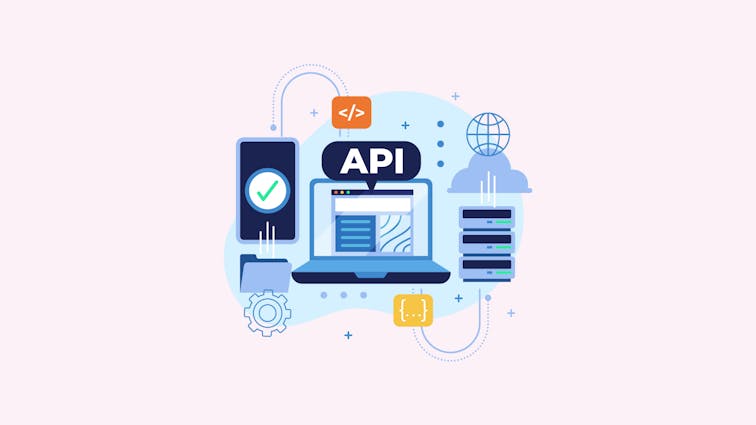
API-hosted payment gateways enable businesses to integrate a third-party payment processing option directly into their e-commerce platform via an Application Programming Interface (API).
This method allows customers to complete transactions on the business’s website without being redirected to an external platform. API-hosted gateways require robust security measures and PCI DSS (Payment Card Industry Data Security Standard) compliance to ensure the safe handling of sensitive data.
How API Payment Gateways Work
API payment gateways require businesses to integrate the payment process into their website or application using a software interface. This allows for a high level of customization and control over the payment process.
Advantages of API Payment Gateways
- Highest level of customization: API payment gateways provide businesses with the highest level of customization and control over the payment process.
- More payment options: API payment gateways often offer more payment options than hosted or self-hosted payment gateways.
Disadvantages of API Payment Gateways
- Higher cost: API payment gateways are often more expensive to set up and maintain than hosted or self-hosted payment gateways.
- More technical knowledge required: API payment gateways require a high level of technical knowledge to set up and maintain.
Examples of API Payment Gateways
Two popular examples of API payment gateways are Braintree and Adyen. Braintree is a payment gateway that offers support for a range of payment methods and features such as fraud protection and recurring billing. Adyen is a payment gateway that specializes in global payments and supports over 250 payment methods and 150 currencies.
4. Local Bank Integration

Local bank integration is an e-commerce payment gateway option that connects the merchant’s website directly to their preferred bank for transaction processing.
This method is popular among businesses with a strong local presence and those operating in regions with specific banking requirements.
Local bank integration can provide a seamless user experience, but it may also require in-depth knowledge of local regulations and banking systems.
How Local Bank Integration Works:
Local bank integration works by creating a direct link between the payment gateway and the local bank.
When a customer initiates a payment, the payment gateway sends a request to the bank for the funds. The bank then processes the payment and transfers the funds to the business’s account.
Advantages of Local Bank Integration:
- Increased Trust: Local bank integration allows customers to make payments directly from their bank accounts, increasing their trust in the transaction and the business.
- Lower Transaction Fees: Local bank integration often has lower transaction fees compared to other payment methods, making it more cost-effective for businesses.
- Faster Processing Time: Since local bank integration does not require a third-party processor, payments can be processed faster, reducing the waiting time for businesses and customers.
- Widely Accepted: Local bank integration is widely accepted across various countries, making it a popular payment method for international transactions.
Disadvantages of Local Bank Integration:
- Limited Accessibility: Local bank integration is not available in all countries, limiting its accessibility for businesses operating in certain regions.
- Technical Integration: Local bank integration requires technical expertise to integrate with the payment gateway and the bank, making it challenging for some businesses.
- Security Concerns: Local bank integration requires businesses to collect sensitive customer information, which can pose a security risk if not handled properly.
Examples of Local Bank Integration Payment Gateways
Local bank integration payment gateways such as First Data, Worldpay, and Barclaycard allow businesses to integrate their payment process with their local bank, providing a seamless and efficient payment experience for customers.
5. Direct Payment Gateways
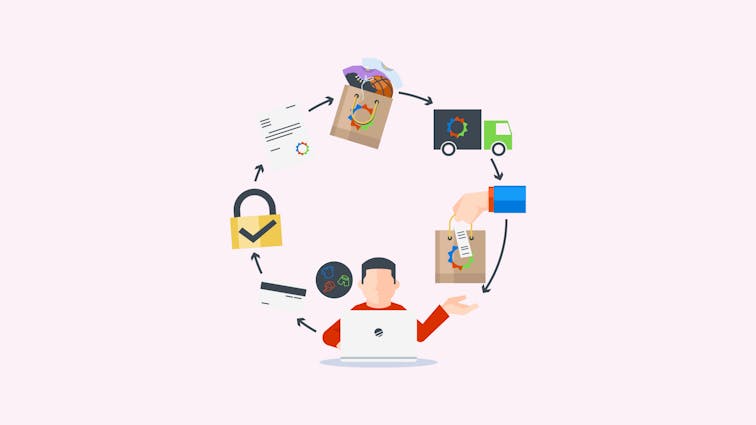
Direct payment gateways are embedded into the e-commerce platform, allowing customers to complete transactions without leaving the website.
This type of gateway is popular among businesses looking to provide a seamless and intuitive user experience.
However, direct payment gateways necessitate strict security measures and ongoing maintenance to ensure optimal performance.
How Direct Payment Gateways Work
Direct payment gateways are a type of payment gateway that allows customers to make payments directly on a merchant’s website. They eliminate the need for third-party redirection to a payment page.
Direct payment gateways function by transmitting payment data securely between a customer’s web browser and a merchant’s server using secure socket layer (SSL) encryption.
The transaction data is then forwarded to the payment processor, who authenticates and processes the payment.
Advantages of Direct Payment Gateways
- Enhanced security: Direct payment gateways provide a higher level of security compared to other types of payment gateways as they enable merchants to capture payment data directly and protect it using advanced encryption techniques.
- Convenience: Direct payment gateways provide a seamless checkout experience for customers as they do not have to be redirected to another payment page.
- Lower transaction fees: Direct payment gateways have lower transaction fees as they eliminate intermediaries such as payment gateways and credit card networks.
- Real-time transactions: Direct payment gateways enable real-time transaction processing, allowing merchants to receive payments immediately.
Disadvantages of Direct Payment Gateways
- Technical complexity: Direct payment gateways require technical expertise to integrate into a website, and their implementation can be challenging for businesses with limited technical resources.
- Security concerns: Direct payment gateways can be vulnerable to hacking attempts and data breaches if not implemented correctly.
- Limited payment options: Direct payment gateways support a limited range of payment options compared to other payment gateways.
Examples of direct payment gateways include Amazon Pay, Shopify Payments, and Adyen.
Factors to Consider When Choosing a Payment Gateway
Selecting the right online payment gateway solution for your business requires careful consideration of several factors. These include:
1. Security:
Ensuring the safe handling of customer data is paramount. Choose a gateway with robust security features and compliance with industry standards such as PCI DSS.
2. Cost:
Evaluate the transaction fees, setup costs, and ongoing maintenance expenses associated with each gateway option.
3. Currency support:
If your business caters to a global audience, select a gateway that supports multiple currencies and local payment methods.
4. Integration:
Assess the ease of integrating the payment gateway with your existing e-commerce platform, accounting systems, and other software.
5. Customization:
Determine the level of customization each gateway option offers to ensure it aligns with your brand image and user experience expectations.
6. Customer support:
Opt for a gateway provider with a strong track record of reliable customer support to assist with any technical issues or queries that may arise.
Popular Payment Gateway Providers:
Now that we’ve explored various types of e-commerce payment gateways and the factors to consider when choosing one, let’s take a closer look at some popular providers in the market.
1. PayPal
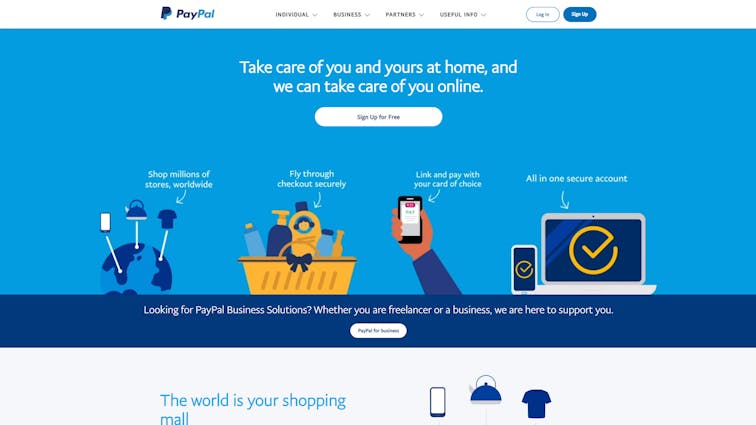
PayPal is a widely recognized hosted payment gateway, offering a range of payment processing options suitable for businesses of all sizes.
It supports multiple currencies and offers a simple integration process. PayPal’s fees vary depending on the transaction volume and location.
2. Stripe
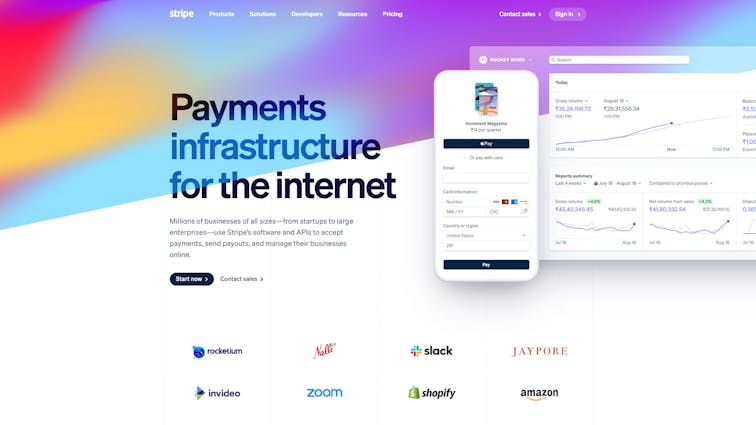
Stripe is an API-based payment gateway that offers a customizable and developer-friendly platform.
It supports multiple currencies and offers additional features such as recurring billing and invoicing. Stripe’s pricing is transparent, with a pay-as-you-go fee structure.
3. Square

Square is a versatile hosted payment gateway that caters to businesses of varying sizes.
It offers an all-in-one solution, including hardware for point-of-sale transactions, invoicing, and e-commerce integrations. Square’s transaction fees are competitive and transparent, with no setup or monthly costs.
4. Authorize.Net
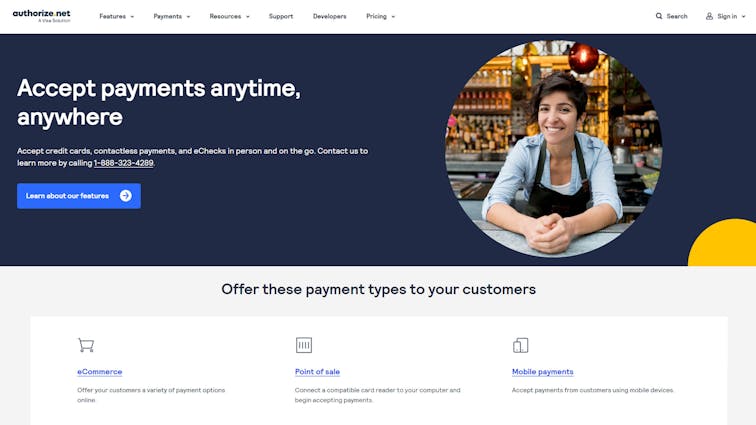
Authorize.Net is a widely used API-hosted payment gateway that offers a secure and reliable platform for businesses.
It supports a variety of currencies and integrates with numerous e-commerce platforms. Authorize.Net’s fees include a setup cost, monthly fees, and per-transaction charges.
5. Adyen
Adyen is a direct payment gateway that provides a seamless and secure experience for businesses and their customers.
It supports multiple currencies and offers a unified platform for online, in-app, and in-store payments. Adyen’s fees are based on a pay-as-you-go model, with different rates for various transaction types.
Conclusion:
The digital economy has necessitated the adoption of diverse payment gateway types to cater to the evolving needs of e-commerce businesses.
Understanding the various different payment gateways and their features is crucial to selecting the best payment processing option for your enterprise.
By evaluating the available online payment gateway solutions and considering factors such as security, cost, currency support, integration, customization, and customer support, you can make an informed decision and optimize your e-commerce platform for success.




